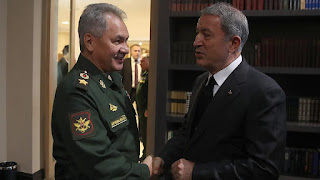Since its establishment, in Egypt, almost a century ago, the Muslim Brotherhood group has relied on playing the victim and fabricating delusional grievances, in order to recruit new members, mobilize local and international supporters, and justify waging violent jihad against state institutions and officials, and also against civilians, who reject the misleading rhetoric of the group.
Recently, the Muslim Brotherhood decided to use the Egyptian Revolution of 2011 as their own grievance, with the purpose to influence policymakers in the United States, under the new Biden Administration.
Muslim Brotherhood members living in the U.S., such as Mohamed Soltan, have already started talking in the name of the Egyptian revolution and the Egyptian people to American media and members of Congress. This time, the Muslim Brotherhood is playing their grand deception game on the new Biden Administration; not through introducing themselves as a political opposition party suppressed by the Egyptian regime, but through claiming the role of a civil society group concerned with improving human rights in Egypt.
Unfortunately, the prevailing media rhetoric in Egypt, over the past few years, which insists on claiming that Egypt’s 2011 revolution was nothing but a foreign conspiracy, and their constant denial of the heroic role of the Egyptian liberal democratic youth in toppling Mubarak’s dictatorship, gave the opportunity, today, to the members of the Muslim Brotherhood to use the name of the revolution, which they did not even participate in creating, to legitimize their Islamist agenda in the west and beautify their ugly truth.
To perfect their deception game, last week, Mohamed Soltan tweeted that his recently established organization “Freedom Initiative” cooperated with two Democrat members of Congress, Don Beyer and Tom Malinowski, on forming a congressional “Egypt Human Rights Caucus” to mark the 10th anniversary of the Egyptian Revolution. Among the other human rights organizations involved with the new Caucus are Human Rights Watch, Amnesty International, and POMED; all of which are, allegedly, funded by Qatar and previously hired employees directly and indirectly affiliated with the Muslim Brotherhood.
The names of the two Congressmen forming the Caucus and the history of the human rights organizations they are cooperating with for this purpose, raises a lot of doubt around the real intentions of this Caucus. The Caucus looks more like a Congressional advocacy group defending the interests of the Muslim Brotherhood against the interests of the Egyptian state inside the American Congress, more than it is a group sincerely interested in advancing human rights in Egypt.
When he was working for the Bureau of Democracy, Labor, and Human Rights at the U.S. State Department, Malinowski advocated for Soltan’s release from prison in Egypt, wherein he was accused of inciting violence, along with other Muslim Brotherhood members, including his father Salah Soltan who is a famous leading figure at the international organization of the Muslim Brotherhood. After Malinowski quit diplomacy to become a member of Congress, he helped Soltan and his group organize congressional hearings and other events at Capitol Hill to attack the Egyptian state, and indirectly promote the Muslim Brotherhood discourse against the Egyptian state, under the umbrella of defending human rights.
There are published reports claiming that Malinowski received money from Qatar, through Al-Jazeera and its affiliated offices, to play this suspicious role in supporting the Muslim Brotherhood group at American policymaking bureaus, especially after 2017, when some Congress members were publicly shamed for meeting with members of the Muslim Brotherhood at Capitol Hill. Yet, let us assume, in good faith, that all these reports are wrong and that Malinowski provides this continued support to Soltan and his group only because he believes in human rights, and because he believes that Soltan is really a human rights activist and not an advocate of the Muslim Brotherhood agenda.
Nevertheless, there are some difficult questions that one can hardly find a logical persuasive answer for, in this regard:
(1) Why would an American Congressman, and a former diplomat, who is liberal and democrat, like Tom Malinowski, work at the service of a Muslim Brotherhood member like Mohamed Soltan and his affiliates?
(2) why does Malinowski advocate for human rights in Egypt, through Soltan and his affiliates only, despite the fact that Soltan has zero experience working for human rights in Egypt or elsewhere before being arrested in Egypt in 2013?
(3) Why would Malinowski, the American liberal democrat, support members of an Islamist organization that is threatening the national security of his own country, according to what is legally proven by FBI investigations and court decisions, which discovered that the Muslim Brotherhood’s ultimate goal in the U.S. is to “sabotage America from within” to replace the democratic system of governance with an Islamist regime?
Until we get clear answers to these questions, the sincerity of the Egypt-related activities of Congressman Malinowski, in support of the Muslim Brotherhood activist Mohamed Soltan and his Muslim Brotherhood affiliates, shall remain a matter of doubt and suspicion.












